With over 125 tools in the Ryobi 18-Volt One+ line of tools, it’s not surprising to find specialized tools in their lineup. A caulk gun would be a prime example of what I consider to be one of these specialized tools. These battery operated caulk guns are not necessarily new, but aren’t as widely known about and rarely displayed in the big box stores. Several power tool companies make battery operated caulk and adhesive guns, but none of them do it at a price point even close to what Ryobi has been able to do. So let’s take a look at the Ryob 18-Volt Caulk Gun Review.
Ryobi 18-Volt Caulk Gun Review Overview
Right now, I’m in the middle of a complete bathroom remodel job. This job includes ripping out all of the old plaster, tub, tub surround, flooring, and other stuff.
If you’ve ever tried to tackle a job like this yourself, you may find some of the tasks involved are easier than others. Each person is different and has their strengths and weaknesses in different areas. For me, an area of weakness is definitely caulking the tub and tub surround. I’ve always used cheap hand operated caulk guns and as expected, always gotten subpar results.
Quite honestly, I’ve never really looked into battery operated caulk guns due to the high price of the contractor grade tools. Ryobi, on the other hand, offers an 18-volt option that is very affordable and has made it almost impossible for me to continue using hand-operated caulk guns.
Since I got the Ryobi 18-volt caulk gun, I’ve been looking forward to tackling all of the caulking I have to do in this bathroom. I’m expecting better results than what I have gotten in the past.
Ryobi 18-Volt Caulk Gun Review Features
The Ryobi 18 volt power caulk gun produces 500 lbs. of push force to handle higher viscosity materials. With all of this power, Ryobi has included a variable speed selector that allows you to adjust and control the rate at which the caulk is dispensed. By finding the rate that best suits you, you can produce perfect beads of caulk.
The switch lock features help prevent accidental start-ups of the unit.
An all-metal plunger rod is used to handle many jobs and prolong the life of this tool.
An onboard puncture tool is there to break caulk tube seals. No more looking around for a 3-inch screw.
Ryobi 18-Volt Caulk Gun Review Performance
The overall build of this unit is surprisingly stout. The metal plunger is heavy duty so that it can handle even the higher viscosity adhesives.
The variable speed selector works extremely well. This selector is fully adjustable from full speed to the lowest setting. There are no preset stops, so dialing in the speed that works best for you is easy. Also, you can change your speed on the fly. There is no need to stop what you are doing to make an adjustment.
The switch lock is easy to operate and necessary in my opinion. Any accidental operation of the trigger, when not wanted, can cause a mess. It’s a simple feature to prevent the headache of cleaning up an unintentional mess.
The onboard puncture tool is stored out of the way when not needed and is extremely nice to have.
There is one thing I was worried Ryobi might overlook when designing this tool was a plunger release when you want to stop caulking. I am pleased to say, my concern was not warranted. As soon as you take your finger off of the trigger, the plunger instantly backs up a little bit to take the pressure off of the tube. This way, you won’t continue to have caulk coming out the end. I like the fact that this is automatic and I as the user don’t have to worry about releasing this pressure.
The all-metal plunger can be manually pushed in or out to make tube changeout quick and easy.
For someone that is not skilled at laying a bead of caulk, this gun simplifies the process. Due to my relative inexperience in caulking, I was able to dial the speed down to the lowest setting and get good results.
Ryobi 18-Volt Caulk Gun Review Value
On The Home Depot’s website, the Ryobi 18 volt power caulk and adhesive guns are listed at $44.00. For this price, you will receive the bare tool, and manual. The battery and charger are sold separately.
If you compare this to the bare tool prices for the other brands’ 18 and 20-volt tools, you will see that the Ryobi version sells for nearly $150 cheaper. Even the 12-volt versions from the other brands are about $80 more expensive than Ryobi’s 18-volt model.
WOW! Now, this value compared to the other models, Ryobi hits this out of the park.
Did I forget to mention that the Ryobi unit is supposed to be able to push up to 200 tubes of caulk per single 4-amp hour battery? Even if you cut this number in half, or for that matter, one quarter, it’s still impressive to me.
Ryobi 18-Volt Caulk Gun Review Final Thoughts
Ryobi continues to impress me. I know their target audience is the homeowner, but with this type of performance and run time from their 18-volt platform, this is a tool I can easily picture on the jobsite.
With a price tag nearly 1/3rd the cost of a “pro” model, it’s almost a no brainer for a contractor to purchase one or even two of these for jobs that require caulk or adhesive.
For a homeowner who just wants better results for their home remodeling jobs and will only be using it once in a great while, the low cost is justified by the great results you will see.

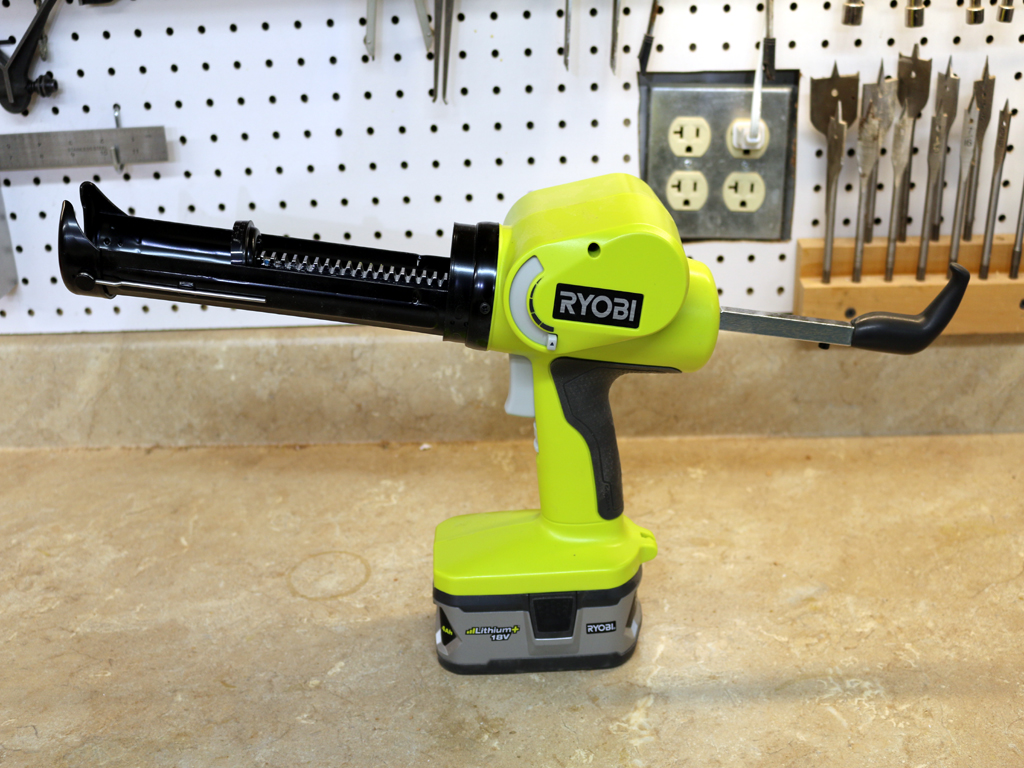

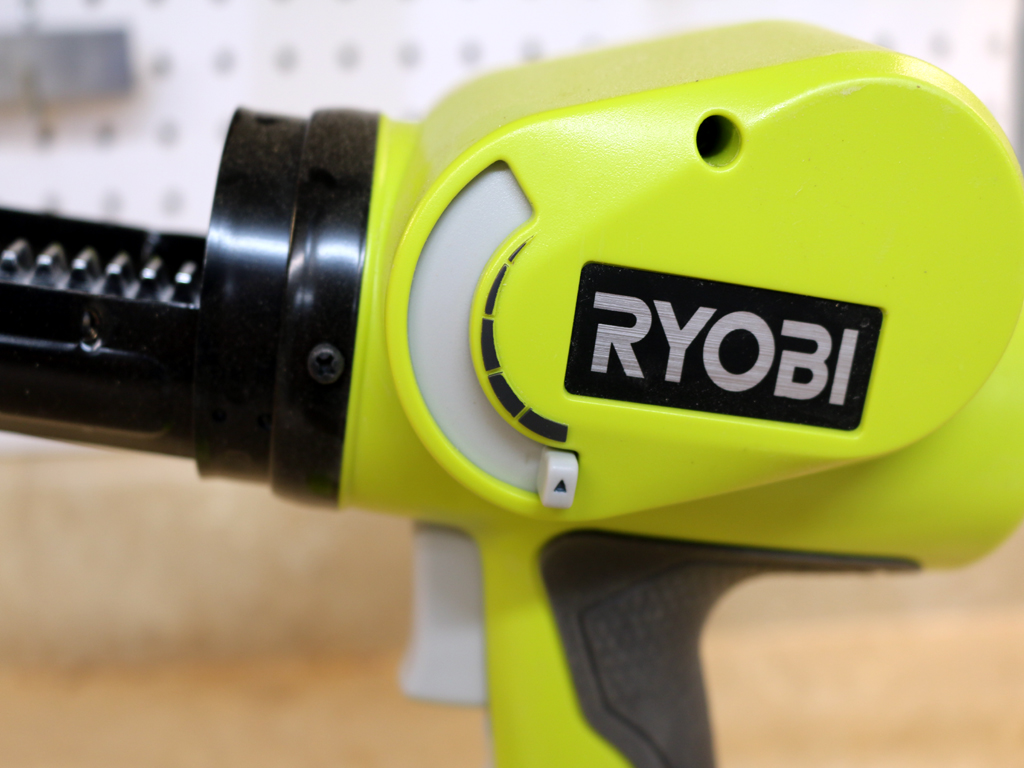
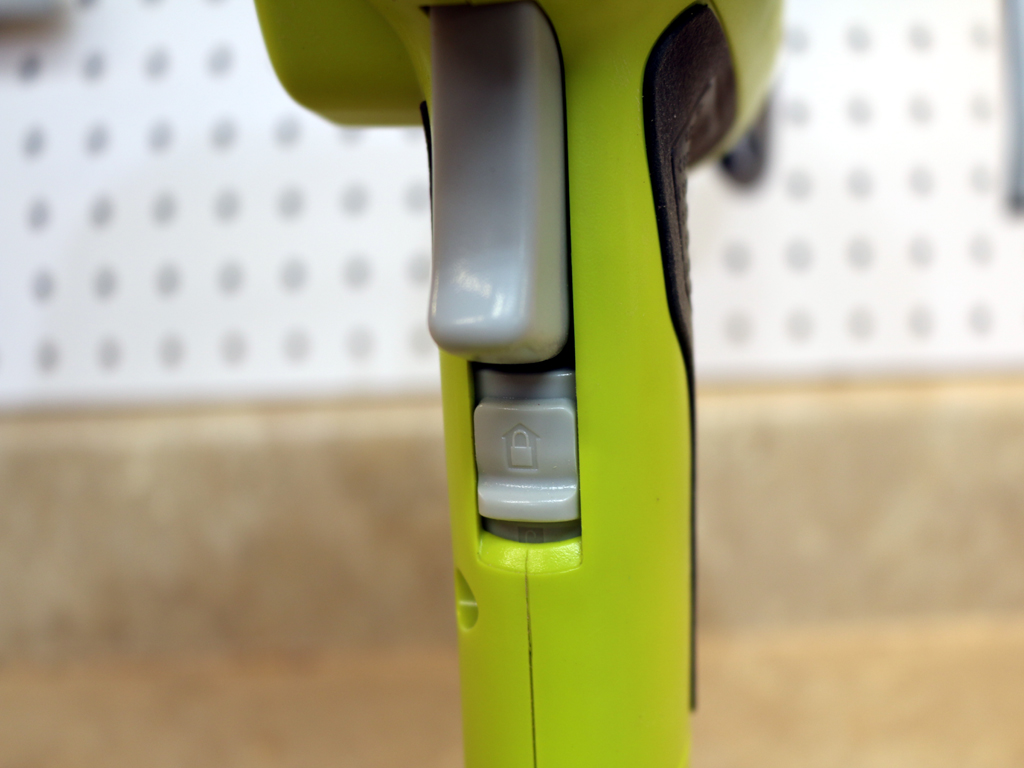
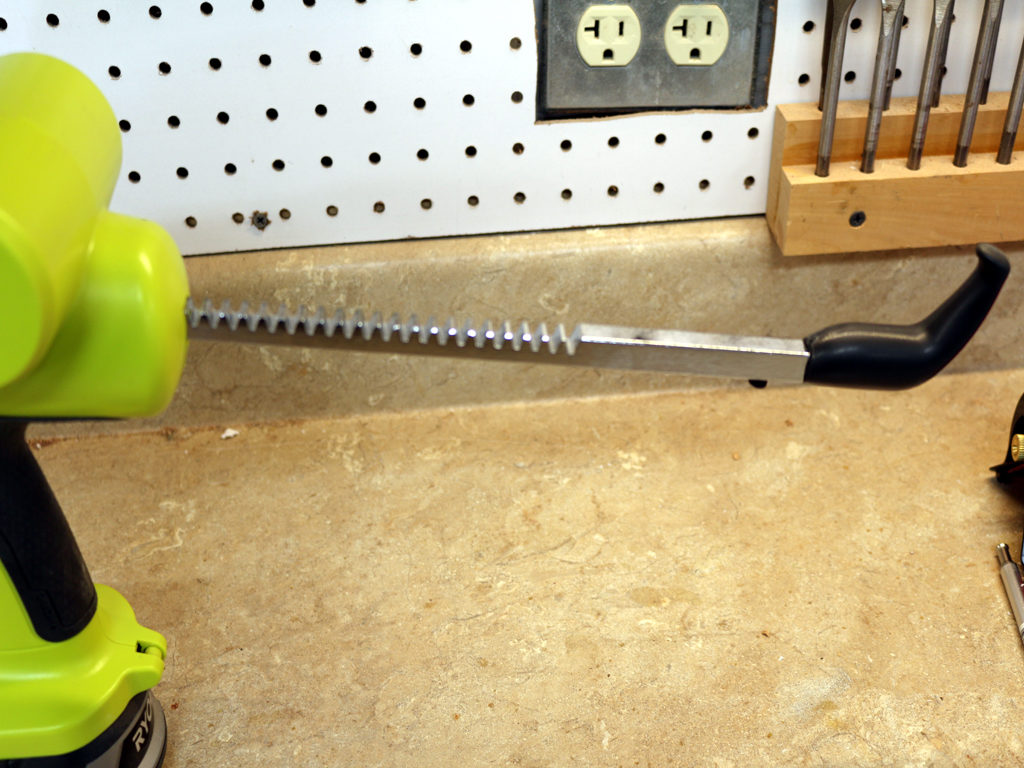
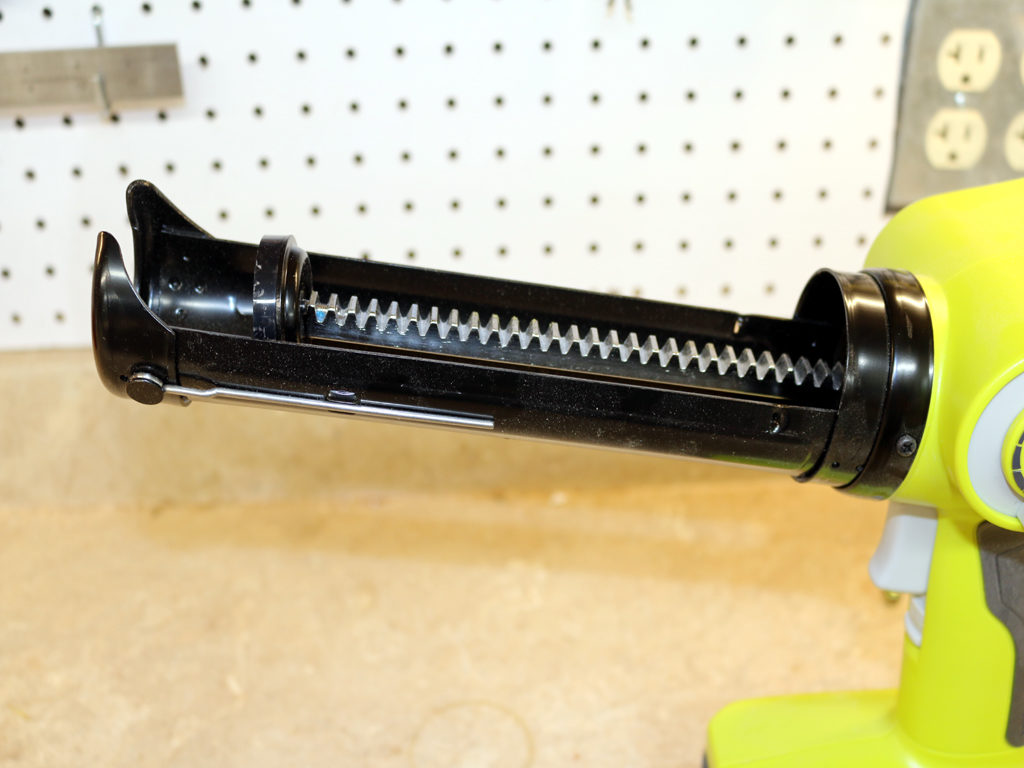
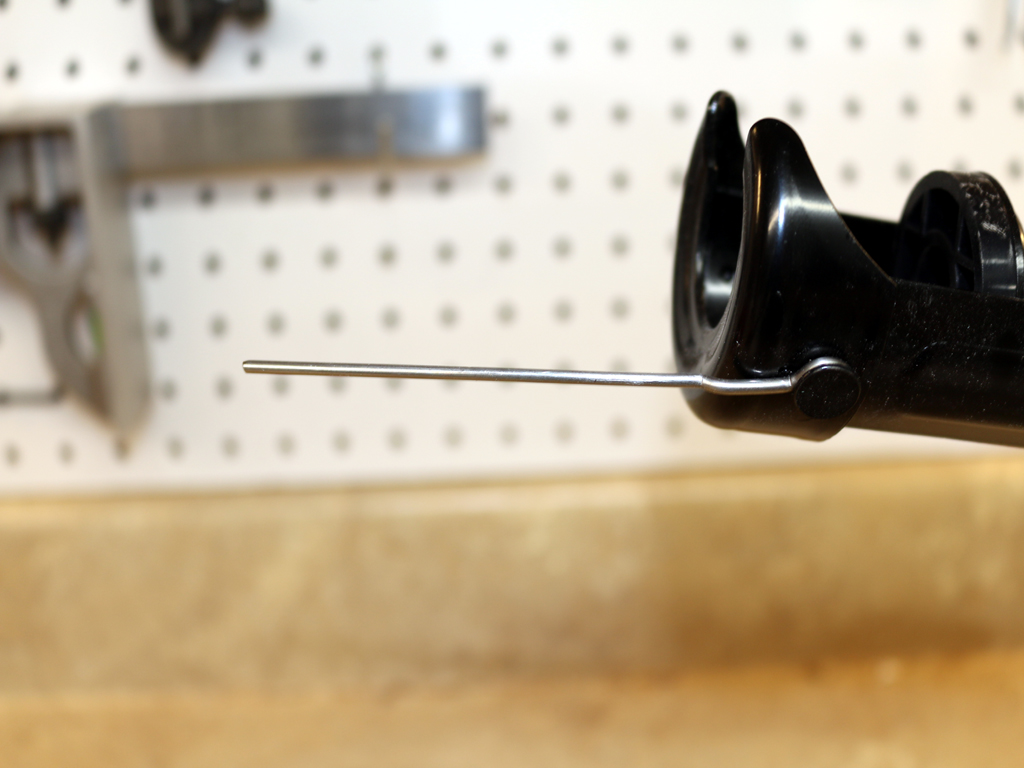
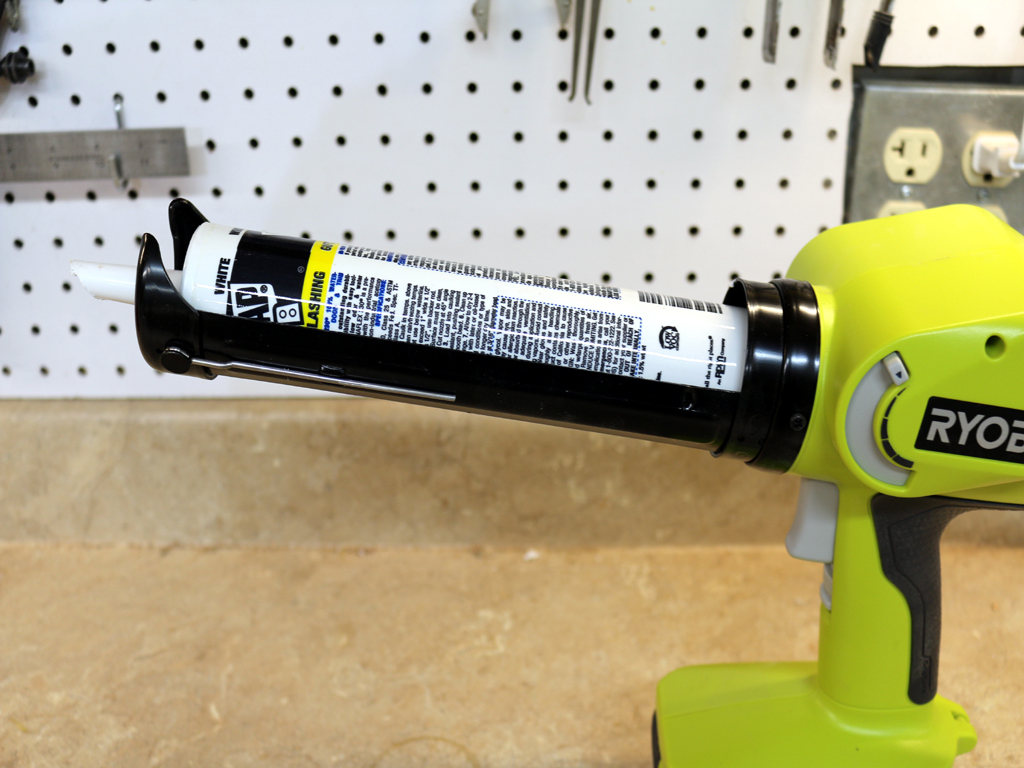
I love this caulk gun, and the review shared here by John is excellent. After reading this review, I will purchase the Ryobi 18-volt caulk gun. I hope I can get it for a reasonable price.